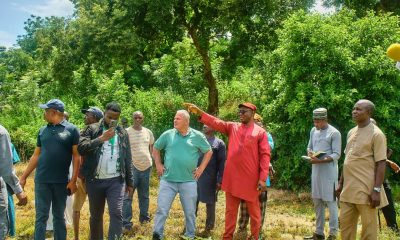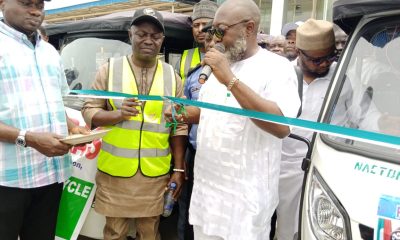Market
NNPC, NIPCO Collaborate To Deliver CNG To Nigerians
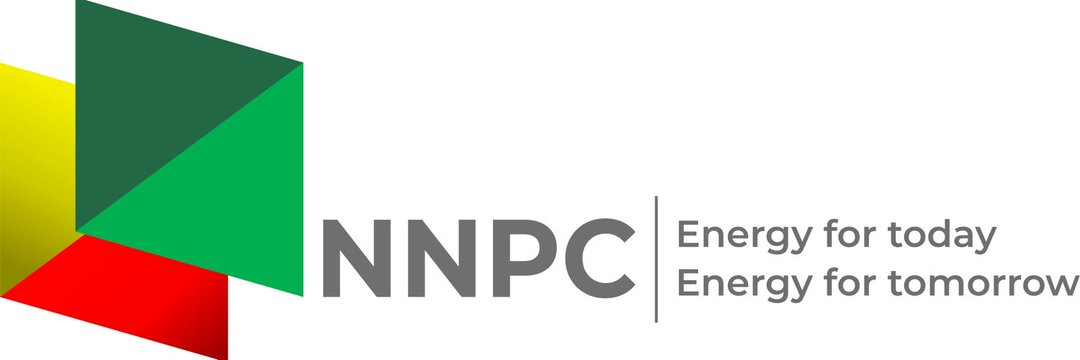
…in compliance with the President’s directive
As part of its commitment to providing cheaper alternative fuel to motorists in the country, the Nigerian National Petroleum Company (NNPC) Limited has announced a strategic partnership with NIPCO Gas Limited to deploy Compressed Natural Gas (CNG) stations across the country.
The Chief Corporate Communications Officer of NNPC Limited, Garba Deen Muhammad in a press statement said the collaboration was intended to expand the CNG infrastructure and improve access to CNG.
According to him, it would also accelerate the adoption of cheaper and cleaner alternative fuel for buses, cars and Keke NAPEP, which will significantly reduce the cost of transportation and engender sustainable national economic growth.
Muhammad explained that, “Under the NNPC-NIPCO strategic partnership, 35 state-of-the-art CNG stations will be constructed nationwide, including three (3) Mother stations.
Once fully operational, the stations can service over 200,000 vehicles daily, thereby significantly reducing the cost of automobile fuel for Nigerians and the cost of transportation”.
He stated that the project would be rolled out in phases.
“The first phase, comprising 21 CNG stations, will support intra-city transportation and be ready by the first quarter of 2024; While the second phase, comprising 35 CNG stations, will support inter-city transportation and will be ready by late 2024. This will be further complemented by an additional 56 stations to be deployed by NNPC Retail across the country”.
“NIPCO Gas Limited is currently operating 14 CNG stations across Nigeria and has converted over 7,000 vehicles to run on CNG. NIPCO’s technical competency and field experience will bolster this initiative’s success and amplify its positive impact on the Nation’s economy.
He revealed that, “the initiative will leverage Nigeria’s abundant natural gas resources to bring multiple benefits to Nigerians, including access to cheaper fuel, reduced cost of transportation, reduced carbon emissions, create new business value chains and streams of job opportunities”.
He pointed out that the NNPC Limited would expect further private sector participation by oil marketing companies to broaden CNG penetration and availability.
He however assured that the NNPC Limited remains committed to reliably delivering energy while continuously creating value for Nigeria’s prosperous future alongside our partners.
Market
FG Sets Up Committee to Commercialise Research, Drive Knowledge Economy
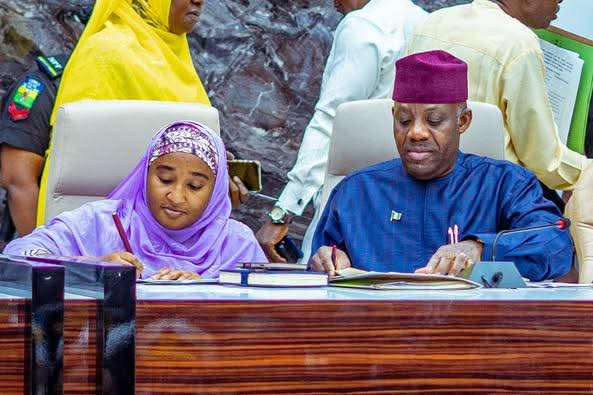
The Federal Government has inaugurated the Ministerial Research and Innovation Commercialisation Committee (RICC) to bridge the gap between academic research and commercially viable innovations.
According to a press release signed by the Director, Press & Public Relations, Ministry of Education, Boriowo Folasade, the Minister, Dr. Maruf Tunji Alausa described the move as a strategic step toward building a knowledge-driven economy rooted in indigenous innovation.
He emphasized the need to convert research into scalable economic solutions and acknowledged the role of higher education in national development.
The RICC, anchored on the Triple Helix Model, will foster synergy among academia, industry, and government to commercialise research, finance innovation, and protect intellectual property.
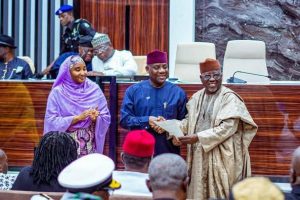
Dr. Alausa lauded TETFund’s ongoing investments in research facilities, including labs, simulation centres, and renewable energy projects.
He also announced the upcoming launch of a Student Venture Capital Grant Scheme under TETFund, offering up to ₦50 million for innovative student projects (300 level and above).
The fund, in collaboration with the Bank of Industry, will undergo a four-stage evaluation, with grants expected by September or October 2025.
Minister of State for Education, Prof. Suwaiba Sa’id Ahmad, urged a shift from academic publishing to real-world innovation and job creation, advocating stronger partnerships between academia and industry.
Committee Chair, Dr. Tayo Aduloju (NESG), stressed the urgency of action and proposed a National Innovation Forum to coordinate national innovation efforts.
The RICC supports the Renewed Hope Agenda to transform Nigeria into a research-driven, innovation-powered economy.
Market
GCR Affirms Dangote Cement AA+ (NG) Rating
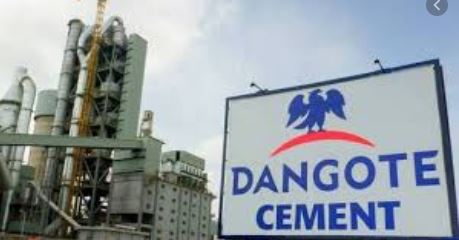
The Global Credit Ratings (GCR) has affirmed the national scale long-term and short-term issuer ratings of AA+ (NG) and A1+(NG), respectively, accorded to Dangote Cement Plc.
In its latest rating note, the emerging market ratings agency said concurrently, it has also affirmed the national scale long-term issue rating of AA+ (NG) accorded to each of Dangote Cement Plc’s existing Senior Unsecured Bonds.
It stated that the company’s N3.6 billion series 1 Tranche A Senior Unsecured Bond was fully redeemed in May 2024, and the rating has been withdrawn. The outlook on the ratings is stable.
GCR said the affirmed ratings reflect DCP’s sustained competitive advantages and market leadership which have translated to strong earnings and cash generation.
These strengths are however balanced against the elevated short-term debt, and the consequent increase in finance cost, which, combined with high dividend payouts creates further liquidity pressures.
The ratings also remain constrained by the relatively weaker credit profile of DCP’s parent company, Dangote Industries Limited, GCR Ratings said.
The ratings agency said the competitive strengths of DCP are anchored by its substantial operational scale, higher production capacity and greater geographical diversification relative to peers.
The company’s current total installed capacity is 52 million tonnes, across ten African countries, in contrast to its closest peers who operate solely in Nigeria and have a combined 21.5 million tonnes capacity.
Despite pan African revenue doubling in recent years, Nigeria still accounts for over 70% of the company’s earnings before interest tax depreciation and amortisation (EBITDA).
“Looking ahead, the focus is to facilitate export operations from Nigeria to other West African markets, which would diversify operations and could create better competitive advantages over the long term”, GCR said.
The firm also noted that earnings assessment remains a key rating strength for Dangote Cement Plc, notwithstanding the weaker market demand in Nigeria.
Its revenue increased by 36% to N2.2 trillion for the financial year ended 2023, with a further annualised top line growth of 48% in Q1 2024.
The company’s growth was largely driven by higher pricing and the effect of translation gains from Pan African earnings given the weaker Naira, said GCR Ratings.
Analysts wrote that despite these price adjustments, EBITDA margin contracted to 35% in March 2024 from 39% in 2023 from 43% as costs could not be fully transferred to consumers.
“We expect steady increase in volumes driven by a robust public construction pipeline over the next two years, while margin should be supported at around 37% over the next 18 months on the back of further price increases and cost optimisation plans”.
Analysts at GCR explained that despite the consistent rise in debt, the strong earnings and cash flows continue to support a positive leverage assessment.
Gross debt spiked to N1.3 trillion as of 31 March 2024 from N736 billion in 2023; N588 billion in 2022, following the issuance of commercial papers in 2023 to fund DCP’s share buyback scheme, as well as the impact of devaluation on the USD-denominated debt.
Nevertheless, net debt to EBITDA was maintained below 1x, the rating note said, adding that DCP’s debt metrics are moderated by its very strong cash flows, underpinned by favourable credit terms with suppliers from an average of 38 days in 2022 to 67 days in 2023.
Thus, operating cash flows covered an improved 91% of debt in Q1 2024 compared to 56% in 2023 and 48% in 2022.
“We expect these metrics to be sustained at strong levels over the review period on the back of robust earnings and cash flows.
“Conversely, we have negatively considered the elevated short-term debt which is 60% of total and the consequent rise in finance cost which narrowed interest coverage to 5.9x in March 2024 from 7.2x in 2023 and a high of 18.6x in 2022”.
DCP plans to raise debt to refinance some existing loans, but the new debt would be costlier given the prevailing higher lending rates, GCR Rating said in its report.
This notwithstanding, analysts at the firm said they expect a modest improvement in Dangote’s interest coverage to around 7x-9x over the outlook period, on the back of better earnings.
The rating maintained that the cement company’s liquidity assessment remains a negative rating factor due to the low liquidity sources versus uses coverage of 1.2x over the next 12 months.
This is predicated on the sustained high short-term debt redemption of N638 billion, as well as our expectation that dividend payouts will remain high until DIL’s large projects are fully operational.
“We expect capital spending to be modest over the rating horizon largely related to replacement cost and some capacity expansion programmes across the company.
“Against these, we have considered the strong cash holding of N626 billion as at March 2024 and the projected robust operating cash flows, which would be complemented by substantial unutilised committed credit facilities of about N500 billion and the company’s access to a very diverse funding base”.
The rating note reads that the company’s liquidity pressures could however be worsened by a persistent rise in short term debt or material underperformance of operating cashflows.
A negative adjustment has been applied to DCP’s ratings to reflect the relatively weaker creditworthiness of DIL. This is because GCR considers DCP a core part of the group, accounting for over 70% of group revenue in 2023, the rating note said.
DIL’s credit profile assessment is constrained by the high debt incurred to fund the fertilizer and refinery projects.
Analysts believe that these projects are yet to meaningfully contribute to group revenue, but this should change within the next 18 months as operations attain a greater scale, with robust earnings and cash flows allowing DIL to gradually reduce debt.
DCP’s N100 billion in series 1 bonds, N46.4 billion series 1 (Tranche B & C) bonds, and N116 billion series 2 (Tranches A-C) bonds, are direct, unconditional, senior, unsubordinated, and unsecured obligations.
Hence, GCR said they rank pari passu with all other senior unsecured creditors of company and the bonds therefore bear the same national scale long-term rating accorded to DCP.
Accordingly, any change in DCP’s long term corporate rating would impact the ratings of the bonds. GCR analysts said in the assessment that they have reviewed the trustees bond performance report dated July 9, 2024, and no breaches were identified.
Outlook statement
The stable outlook reflects GCR’s view that DCP’s strong market position will continue to support robust earnings and cash flows, notwithstanding financial disruptions to the Nigerian economy.
“While we also expect liquidity pressures from the high short-term debt and huge dividend payouts, these should ease as DIL’s large projects becoming fully operational”, GCR Ratings said. #GCR Affirms Dangote Cement AA+ (NG) Rating
Market
Fitch Rates Kogi State ‘B-‘ With Positive Outlook
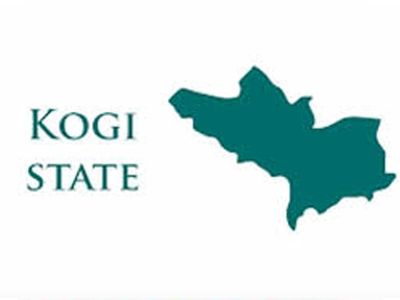
Fitch Ratings has assigned Kogi State a ‘B-‘ Long-Term Issuer Default Rating (IDR) with a Positive Outlook and a ‘AA-(nga)’ National Long-Term Rating. Fitch assesses Kogi’s Standalone Credit Profile (SCP) at ‘b’. A full list of ratings is below.
The ratings reflect Kogi’s revenue dependency on volatile transfers from the federal government of Nigeria, Fitch said. The global ratings agency explained that the ‘b’ standalone credit profile reflects Kogi’s stable operating balance but also vulnerability to oil prices changes and rising adjusted debt.
The IDRs are capped by Nigeria’s ‘B-‘ ratings. The positive outlook on the IDRs, according to Fitch, mirrors that on the sovereign as Kogi’s SCP is currently above the sovereign.
Kogi’s ‘Vulnerable’ risk profile reflects a very high risk that the state’s ability to cover debt service with its operating balance may weaken unexpectedly over our forecast horizon (2024-2028).
This may be due to lower-than-expected revenue, higher-than-expected expenditure, or an unexpected rise in liabilities or debt-service requirements.
Kogi’s revenue robustness is influenced by the state’s overall weak socio-economic profile by international standards and reliance on volatile transfers from the federal government.
Fitch said about 80% of Kogi’s revenue is made of federal allocated revenue, i.e. VAT and statutory transfers (over half of operating revenue) that are highly dependent on the sale of hydrocarbons.
The rating note explained that the proportion of internally generated revenue (IGR) of total operating revenue is less than 20%, below the Nigerian states’ average.
It also said Kogi’s revenue potential depends on its ability to broaden its tax base and enforce tax compliance. The main fiscal revenue is pay-as-you-earn taxes, on which Kogi cannot set the tax rate.
Other IGR sources, including fees, are marginal for Kogi and could offer some potential room for increase. However, Fitch views the ability to expand the tax base as limited by the presence of a wide informal economy and the population’s low-income level.
Fitch noted that Kogi has a broad set of responsibilities and high spending needs to support its population and the local economy.
Analysts explained that spending responsibilities range from social sector (about a third, including education and healthcare) and economic development (about 24%).
Kogi is exposed to a deteriorating operating environment, which weakens its control over total expenditure growth, influenced by high inflation, rising commodity prices, and supply constraint amid naira depreciation.
Fitch expects spending growth to outpace revenue growth in the medium term, in its rating case of a prolonged economic downturn, driven by increasing workforce costs and high inflation on purchases.
It said federal government has no mandatory balanced budget rules for states, which are required to keep their deficits below 3% of national GDP.
Fitch considers Kogi’s cost structure as rigid, with salaries representing about 40% of total costs and operating expenses overall amounting to over 65% of expenditure.
“In our view, capex flexibility is hampered by the limited share of capex in total expenditure and the territory’s high need for investment in energy, infrastructures, information technology to support a more favourable environment to attract business”.
The national framework for debt is evolving so borrowing limits are quite wide, Fitch rating said noting that Nigerian states have no restrictions on debt maturities, interest rates or foreign currency exposure.
Kogi’s NGN165 billion direct debt at the end of 2023 is made up of domestic debt with local counterparties, a bond issuance, and several facilities sponsored by the federal government making up over 50% of its direct debt. External debt represents about 25% of direct debt in 2023, encompassing the effect of steep depreciation of the naira.
Kogi’s debt is largely served through deductions from the statutory allocation. The state’s reported arrears are minimal at less than NGN4 billion and we report them under adjusted debt.
Fitch deems Kogi’s liquidity as weak as the state has no committed liquidity lines, and domestic banks rated in the ‘B’ category tend to extend credit lines either with short maturities or with back-up from the federal government through direct deductions from federal allocations for longer maturities.
Kogi’s liquidity sources include cash and the sinking fund set aside for bond repayments. We generally do not consider financial assets in our calculation as they usually represent non-sellable or illiquid stakes in local entities.
Emergency liquidity may also come directly from the federal government with dedicated facilities helping states meet liquidity shortfalls and covering payments of salaries and pensions.
Under Fitch’s rating case of a prolonged economic downturn, Kogi’s debt payback ratio – the primary metric of debt sustainability assessment – could deteriorate to over 18 years by 2028, corresponding to a ‘bb’ assessment.
Fitch said Kogi’s fiscal debt burden could increase to above 200%, equivalent to a ‘bb’ assessment, while its actual debt servicing coverage will be less than 1x, consistent with a ‘b’ assessment.
Kogi’s fiscal performance improved in 2023, backed by increasing FAAC allocation.
“We expect federal transfers to further increase in 2024 under all scenarios”, Fitch said, adding that Kogi’s operating margin are quite low in the range of 10% to 15%, with a negative operating balance in 2019 due to a peak in personnel costs arrears.
“We expect Kogi’s net Fitch-adjusted debt to increase around NGN500 billion in the medium term, close to 240% of the state’s revenue.
“The debt stock encompasses the effect of the naira’s devaluation on external debt that will support Kogi’s extensive capex plan of over NGN400 billion in 2024-2028 to fund infrastructure construction and upgrade”, Fitch Ratings stated.
Credit: MF
-

 News1 year ago
News1 year agoKogi Police Prohibits, Warns Against Use of Vehicles With Covered Number Plates
-

 News1 year ago
News1 year agoHow We Discovered Drugs In The Residence of Kwara Senator Accusing Us of Corruption. – NDLEA
-

 News2 years ago
News2 years agoKogi Govt. Commences Staff Audit For State Civil Servants Dec. 5th
-

 Politics2 years ago
Politics2 years agoKOGI2023: AA’s Candidate, Braimoh, Promises To Regenerate State’s Economy, Receives Decampees
-

 News2 years ago
News2 years agoPDP Will Expel Wike At Appropriate Time – Bwala
-

 News3 years ago
News3 years agoWAEC Releases 2022 WASSCE Results
-

 News3 years ago
News3 years agoSen. Smart Adeyemi Set To Kick-off N250M Empowerment Programs In Kogi West
-

 Solicited2 years ago
Solicited2 years agoYAHAYA BELLO: The Generalissimo!






